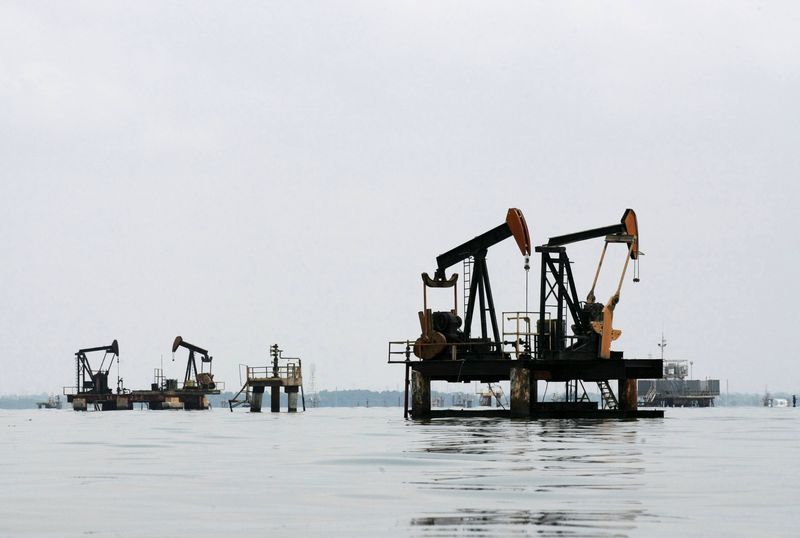By Ambar Warrick
Investing.com -- Oil prices rose slightly on Monday as a brewing banking crisis in the U.S. spurred expectations that the Federal Reserve will soften its hawkish rhetoric in the coming months, although caution still persisted over a potential economic fallout.
Oil markets benefited from weakness in the dollar, after the Fed and other U.S. regulators intervened over the weekend to restore faith in the U.S. banking system following the collapse of Silicon Valley Bank (NASDAQ:SIVB).
Markets began tapering their expectations for more aggressive interest rate hikes by the U.S. central bank, given that the SVB collapse highlights the growing economic cracks caused by sharp increases in interest rates.
A weaker dollar bodes well for commodities priced in the greenback, and also helps demand by making crude cheaper for foreign buyers.
Brent oil futures rose 0.2% to $82.99 a barrel, while West Texas Intermediate crude futures rose 0.2% to $79.92 a barrel by 22:54 ET (03:54 GMT).
But both contracts were still nursing steep losses from last week, as weak economic data from China and signs of sticky U.S. inflation ramped up concerns over a recovery in crude demand later this year.
Investors are also wary of any fallout from the SVB collapse, which could potentially dent U.S. economic growth.
The Fed said it will hold an emergency closed-door meeting later on Monday, where it will likely discuss further action in the wake of the SVB collapse. This, coupled with U.S. consumer price index data due on Tuesday, is largely expected to define oil markets over the coming days.
But oil prices were also somewhat cheered by comments from Saudi Aramco (TADAWUL:2222) Chief Executive Amin Nasser, who said that crude markets remained tightly balanced, and that he was cautiously optimistic over a recovery in demand.
Nasser said that Chinese jet fuel demand was increasing after the country relaxed most anti-COVID measures earlier this year.
The re-establishment of diplomatic ties between Saudi Arabia and Iran also bodes well for global crude markets, given that it could potentially restore stability in the oil-rich middle east.
But Nasser’s comments come on the heels of Chinese data that showed an economic recovery still remained nascent in February. While business activity recovered sharply in the country, inflation and import demand remained well below expectations.
